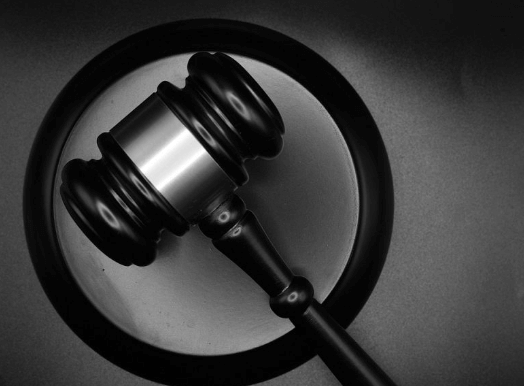Evaluating the Chances of Winning a Wrongful Death Suit

Losing a loved one due to another person’s negligence or wrongful actions is a deeply painful experience. In such cases, family members may pursue a wrongful death lawsuit as a way to seek justice and compensation for their loss. However, filing such a lawsuit comes with its own set of challenges, and evaluating the chances of winning a wrongful death suit is crucial before proceeding.
A wrongful death occurs when a person dies as a result of someone else’s negligence, recklessness, or intentional harm. This type of lawsuit allows certain family members, such as a spouse, children, or parents, to seek compensation for the emotional and financial damages they suffer due to the loss of their loved one. This blog will discuss the key factors that affect the outcome of a wrongful death suit and offer insights into how to improve the likelihood of success. Let’s begin.
Purpose of a Wrongful Death Suit
The primary purpose of a wrongful death suit is to hold the responsible party accountable and secure compensation for the survivors. These damages can include medical expenses, funeral costs, lost wages, and the emotional toll of losing a family member. Although no amount of money can bring back a loved one, this compensation can help ease the financial burden left behind.
See also: How a VA Claim Denials Lawyer Can Boost Your Chances of Approval
Importance of Understanding the Chances of Winning
Before pursuing a wrongful death lawsuit, it’s vital to understand the chances of winning. The legal process can be long and complex, and a clear view of the factors that will impact the case can help plaintiffs prepare better and set realistic expectations.
Key Factors Affecting Chances of Winning
Merit of the Case:
The first consideration when evaluating a wrongful death suit is the merit of the case itself. Plaintiffs must demonstrate that the defendant’s negligence directly caused the death of the deceased. This often involves gathering and presenting strong evidence, such as witness statements, documents, and expert testimony, that can clearly link the defendant’s actions to the death.
- Strength of Evidence: The quality of the evidence is crucial. Physical evidence, such as photos or videos, expert opinions, and eyewitness testimony can strongly support the case.
- Clear Negligence or Wrongdoing by Defendant: Proving that the defendant acted negligently or recklessly is essential. The clearer the fault, the better the chances of winning.
Jurisdiction and Laws:
The chances of winning a wrongful death case also depend on the jurisdiction where the lawsuit is filed. Wrongful death laws vary by state, and certain jurisdictions have stricter standards for proving negligence than others. Additionally, some states impose caps on damages, limiting the amount of compensation that can be awarded.
- State or Federal Laws: Understanding the specific laws and precedents in your state or federal jurisdiction is key. Each has different regulations governing who can file a wrongful death suit and the types of damages available.
- Jurisdiction-Specific Regulations: Some states limit the time frame in which a lawsuit can be filed (statute of limitations), which could significantly impact the chances of winning if not adhered to.
Defendant’s Liability:
A central question in any wrongful death suit is the degree of the defendant’s liability. Plaintiffs must show that the defendant’s actions were a significant factor in the death. The defendant’s insurance coverage or assets may also affect the outcome, as financial compensation often depends on what can be recovered from the defendant.
- Degree of Fault or Negligence: Cases where the defendant’s negligence is more evident tend to have a higher likelihood of success.
- Availability of Insurance Coverage: If the defendant has substantial insurance coverage, it can increase the chances of a settlement or court victory, as the insurance company will have the resources to pay damages.
Plaintiff’s Credibility:
The plaintiff’s relationship with the deceased and their credibility can also play a role. The stronger and clearer the connection between the survivor and the deceased, the more convincing the case.
- Survivor’s Relationship to Deceased: In most states, only close family members (spouses, children, or parents) can file a wrongful death suit, and their relationship to the deceased can influence how the court views the case.
- Plaintiff’s Testimony and Evidence: The plaintiff’s own testimony and how they present evidence can impact the judge or jury’s perception of the case.
Expert Testimony:
Expert witnesses can help strengthen the case by providing professional insights into the cause of death, the defendant’s negligence, or the damages being claimed.
- Quality and Credibility of Expert Witnesses: The better qualified and more credible the expert, the stronger the testimony will be.
- Relevance of Expert Testimony: The testimony should be directly related to the case, addressing key issues such as the cause of death or extent of damages.
Common Challenges One has to Face While Winning a Wrongful Death Suit
- Proof of Negligence: Establishing clear negligence can be difficult, especially if the defendant disputes their role in the death.
- Establishing Causation: Plaintiffs must prove that the defendant’s actions directly caused the death, which can be a complex legal hurdle.
- Calculating Damages: Assessing the full financial and emotional impact of the death can be challenging, especially when putting a monetary value on emotional loss.
- Defendant’s Defense Strategies: Defendants may use a variety of defenses, including arguing that the deceased was partly at fault or that the damages being claimed are excessive.
- Juror Bias or Sympathy: In some cases, jurors may be influenced by their own biases or sympathies, potentially swaying the outcome in favor of the defendant.
Strategies to Improve Chances of Winning
- Gathering Strong Evidence: Collecting comprehensive evidence such as medical records, eyewitness testimony, and expert analysis is crucial to building a solid case.
- Selecting Effective Expert Witnesses: Having credible experts to testify on your behalf can add significant weight to your arguments.
- Building a Strong Case Narrative: Crafting a compelling narrative that ties all evidence together can help make the case more persuasive.
- Negotiating with Defendants: Skilled negotiation, especially with insurance companies, may result in a favorable settlement without the need for a lengthy trial.
- Preparing for Trial: Thorough preparation, including mock trials and detailed review of the evidence, can boost confidence and improve courtroom performance.
Conclusion
While winning a wrongful death lawsuit can be challenging, understanding the key factors that influence the case can significantly improve the chances of success. By gathering strong evidence, selecting credible witnesses, and building a compelling narrative, plaintiffs can navigate the legal process with greater confidence. However, it’s essential to work with a knowledgeable attorney to ensure all legal bases are covered and to help guide the case to a successful outcome. Contact Hess Injury Law today!






